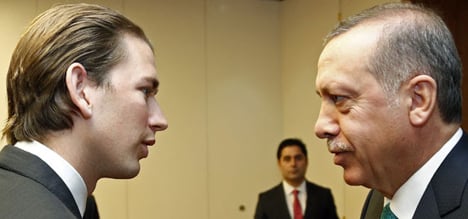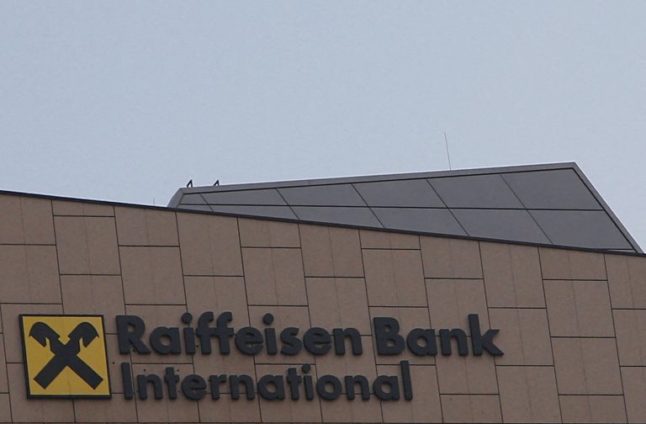Last Thursday a euphoric crowd of 13,000 supporters cheered and waved Turkish flags at Vienna's Albert Schultz Hall, as Erdogan declared he had "come to win hearts".
On the streets outside however, opponents of the Turkish prime minister held a number of counter demonstrations, some of which turned violent.
Kurz told the ORF programme Im Zentrum that Erdogan had made the issue of integration “a terribly emotional topic” in his speech and that previously Austria had made efforts to ensure the topic was discussed objectively.
He added that Erdogan’s visit was “rather unusual and perhaps not particularly polite to his host country." Usually a head of state would meet with the chancellor or the president, Kurz said.
But the co-founder of the New Vienna Turks group and pro-Erdogan activist, Fatih Köse, was critical of the way Erdogan’s visit had been received in Austria.
Köse, who is Austrian but has Turkish roots, said he didn’t want to judge if Erdogan’s visit was part of an election campaign but that as only 0.01 percent of the Austrian population (around 90,000 people) would be able to vote in the Turkish elections, he didn’t see why there had been such an outcry.
Köse said that from his viewpoint Erdogan fulfilled something which was missing in Austrian politics. The government had failed to take care of "conservative values", he said.
Sociologist Kenan Güngör said that he thought that for decades governments had neglected to take care of the Turkish immigrant community, and that it was no surprise that Erdogan had so many supporters in Austria.
He said that in his opinion Erdogan was making a symbolic gesure and that he was the first Turkish prime minister to show an interest in Turkish migrants abroad.



 Please whitelist us to continue reading.
Please whitelist us to continue reading.
Member comments